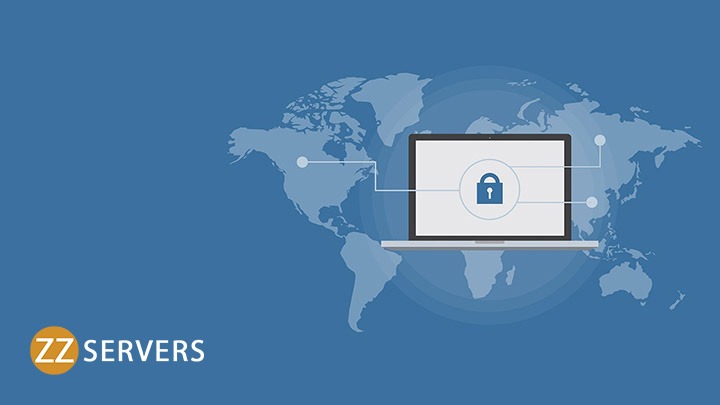Network IT solutions are technologies and services that help connect your company’s devices, systems, and infrastructure. These include networking hardware, security tools, website hosting, and more. Some key network solutions include:
- Networking equipment like switches and routers that link your devices together
- Firewalls and antivirus to protect devices from cyber threats
- Server infrastructure to host applications and store important business data
- Cloud hosting for websites, email, and file storage
- Network management systems that monitor performance and issues
Working with the right solutions provider ensures your network runs smoothly. They can advise on the best options based on your needs and budget. This article will explore popular network solutions and how to select a provider that supports your business goals.
Solving Common Challenges Through Connected Infrastructure
As technology becomes more integral to business functions, network solutions are vital in streamlining operations and resolving pain points companies commonly face. Let’s examine some key issues addressed.
● Integrating Legacy and New Systems: It’s rare for a business to replace its existing infrastructure all at once completely. Networking disparate systems together allows for leveraging past investments while adopting new capabilities. It provides a unified experience for users.
● Improving Remote Access and Mobility: With employees and partners often offsite, network solutions deliver secure connectivity from any location. Virtual private networks (VPNs) extend the corporate network through encrypted tunnels. It enables remote work and telecommuting along with BYOD flexibility.
● Optimizing Processes Across Departments: Centralizing applications, files, and databases on a network boosts collaboration and information sharing between teams. Workflows become more efficient as all parties access the same real-time data sources.
● Enabling E-commerce Functionality: For companies engaging in online sales, network solutions underpin website hosting, transaction processing, and order management systems. They integrate essential commerce capabilities.
● Future-Proofing Your Infrastructure: Rather than being constrained by current hardware, networks support scalability. Cloud platforms especially allow horizontal and vertical expansion on demand. It prepares organizations for unforeseen growth scenarios.
Evaluating the Best Support for Your Unique Environment
With many options available, understanding provider categories helps identify the right fit. Let’s examine some common types.
Consultants & Systems Integrators

Consultants assess your needs for complex projects requiring specialized expertise and design custom implementations. Systems integrators take on full turnkey deployments, handling everything from planning to maintenance.
Software & Infrastructure Vendors
Industry leaders like Cisco, Dell, VMware, and Microsoft supply core networking hardware, security appliances, servers, and cloud-based platforms. Their solutions form the foundational building blocks.
Managed Service Providers (MSPs)
MSPs offer fully managed ongoing support and monitoring of your network, applications, and endpoints through remote management portals. It outsources daily operations and maintenance.
Telecom & Hosting Companies
Providers such as CenturyLink, AT&T, and Amazon Web Services deliver connectivity, internet access, public and private cloud hosting, colocation, and disaster recovery services on a subscription basis.
Boutique Networking Firms
Smaller, niche-focused network solution specialists excel at specific areas like firewall management, wireless deployment, or custom programming. Their deep expertise addresses specialized needs.
Assessing vendor fit involves considering your budget, timelines, risk tolerance, and resource availability. For example, an MSP automates support with less customization than a consultant’s hands-on approach. Understanding the pros and cons helps you choose the ideal partner for your unique requirements.
Essential Building Blocks for Powering Your Connected Operations
With so many interdependent pieces, establishing a solid foundation is key. Let’s examine the core components that comprise modern network solutions.
Hardware Infrastructure
Physical devices like switches, routers, firewalls, and access points pass data between endpoints. Selecting high-quality, high-performance gear from reputable brands ensures reliability as usage grows.
Servers and Storage
These workhorses host your applications and store important files and databases. Whether on-premises or virtual instances in the cloud, leveraging powerful server infrastructure boosts capabilities. Redundant storage systems safeguard critical data.
Network Management Systems
Gaining visibility into network health, security, and resource utilization is mission-critical. Monitoring platforms provide reporting, alerts, and troubleshooting tools for proactive oversight.
Security Appliances
As threats evolve, layered protection is essential. Next-gen firewalls, web filtering, antivirus, and intrusion prevention systems guard the environment, while VPNs facilitate secure remote access.
Cloud Platforms
Public cloud IaaS offerings like AWS and Azure supply elastic computing and storage capacity. PaaS solutions offer preconfigured hosting for applications. Hybrid models also integrate on-premises components.
Collaboration Tools
Enabling effective teamwork requires unified communications solutions. Features like videoconferencing, chat, screen sharing, and file syncing optimize productivity and information exchange.
How Networking Pays Off for Your Organization

With upfront costs involved, it’s important to understand the tangible ways network solutions deliver ongoing value. Here are some top advantages:
● Increased Efficiencies: By centralizing systems and automating manual processes, network connectivity streamlines operations. Employees gain immediate access to the tools and data they need from any location.
● Optimized Productivity: Collaboration technologies facilitate real-time teamwork across offices. Remote work flexibility enhances work-life balance for employees while saving on real estate. Reliable systems minimize downtime costs.
● Reduced Expenses: Well-architected networks minimize support overhead in the long run. Cloud platforms offer predictable monthly pricing with no large capital outlays. MSP services also pass equipment maintenance to provider teams.
● Scalability for Growth: Networked infrastructure easily expands to meet rising demands. Cloud-based solutions provide limitless horizontal scaling as your business grows. New locations integrate without costly infrastructure upgrades.
● Actionable Business Insights: With activity and usage data centralized, network monitoring surfaces valuable analytics. It helps optimize processes, spot inefficiencies, prevent security issues, and plan technology investments strategically.
● Enhanced Customer Experiences: Reliable, high-performance networks underpin seamless digital experiences. E-commerce functionality converts browsers into buyers, while mobility keeps field teams connected.
ZZ Servers’ Comprehensive Approach
If you found this article helpful in understanding the value of network solutions for your growing business, consider contacting the ZZ Servers experts. As a leading managed IT and security provider serving organizations for over 17 years, ZZ Servers has the experience to design, implement, and execute tailored solutions that directly address your unique infrastructure needs and budget. Our certified engineers can perform a customized network assessment for your 10-200 employee operation, then build and support optimized solutions that deliver predictable performance, security, and around-the-clock support. To discuss how ZZ Servers’ comprehensive approach and personalized service model can help power your connected operations, call 800-796-3574 today. One of our network consultants will happily answer any questions and provide a free consultation and quote.
Conclusion
Network solutions refer to technologies like networking hardware, security tools, hosting, and more that connect systems and power digital operations. Issues like integrating legacy systems, enabling remote work, and streamlining multi-location business are effectively addressed.
Consultants, MSPs, infrastructure vendors, and telecom providers are common solution partners to evaluate. Core components involve servers, storage, management platforms, hardware, and cloud infrastructure. Benefits include increased efficiencies, optimized processes, scalability, cost savings, and actionable business insights through centralized access to data and applications.
Frequently Asked Questions
What questions should I ask solution providers?
Some key things to inquire about include their experience, support models, technologies used, security practices, and references from similar-sized businesses. Also, ask about ongoing training options and service level agreements.
How do I evaluate proposals?
Carefully assess factors like infrastructure design, implementation timelines, recurring costs, responsibilities of each party, and change management processes. Benchmark solutions against your requirements and investigate the vendor’s reputation and certifications.
What are ongoing maintenance needs?
Routine tasks involve system monitoring, software updates, backup verification, security patching, and hardware repairs/replacements. An MSP typically handles these remotely, freeing your team for core tasks.
When is it better to outsource vs in-house?
Outsourcing frees capital and recruits specialized expertise, especially if you need a full-time network team. However, retaining control is better for proprietary technologies or sensitive environments. Consider both models.
What skills are required for managing networks?
Core competencies include:
● Configuring and troubleshooting various devices.
● Writing scripts.
● Overseeing security, backups, and performance.
Certifications in CCNA, MCSA, Network+, and Security+ demonstrate proficiency in maintaining modern infrastructure.


